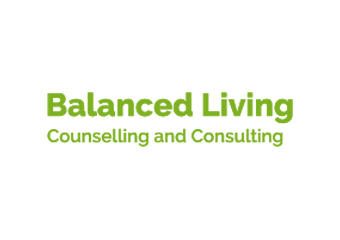
Anna Padula
Clicking on the Send Me Details Now button opens an enquiry form where you can message Anna Padula directly
Balanced Living Counselling & Consulting
Focus areas
Welcome to Balanced Living Counselling
By integrating a number of therapeutic and evidenced-based models, we offer a highly personalised approach tailored to each individual's needs and goals. At Balanced Living Counselling, we work with each individual to help build awareness, strengths and attain personal growth. We believe in individuals striving to lead a balanced life, guided by the values and activities that are important to our own defined lifestyle.
Approach to Counselling
What is Counselling?
Counselling is a journey of self-discovery allowing you to deeply explore your inner world. The role of a counsellor is to enable you to identify the things that are keeping you unhappy, stressed, worried, anxious or depressed and provide you with strategies to manage these emotional challenges.
Why Counselling?
The general objective of counselling is to help resolve crises, reduce distress, develop goals for change and improve overall well-being. Counselling is an opportunity to talk openly and confidentially with a non-judgemental professional who will help guide an individual through their journey.
What to Expect?
Counselling is a very personal process. At times, it is necessary for people to talk about their painful feelings or difficult decisions. They may go through a period of feeling worse than when they first started however with the relevant tools, counselling can be a positive beginning.
Do I Need to Prepare before a Counselling Session?
Prior to your first visit, you don't necessarily need to prepare however it does help to think about what you would like to discuss and perhaps make some notes to bring with you. On the other hand, being spontaneous can also be just as effective.
Services
Stress/Anxiety
Stress is a reaction to a stimulus (something or an event that disturbs our feelings or thoughts) which therefore effects our physical and/or emotional balance. A stressful event can trigger the “fight or flight “response causing hormones such as cortisol or adrenaline to run through our bodies.
Stress and tension are normal reactions to events that threaten us. Such threats can come from accidents, problems on the job, financial troubles or with family issues.
Anxiety can be defined as a strong and unpleasant feeling of nervousness or distress in response to a feared situation either in the past, present or future. Every year around 14% of all adult Australians are affected by an anxiety disorder. Women are affected more than men.
We can all feel anxious from time to time, however it is more than just feeling stressed or worried.
Some of the many physical symptoms can be hot and cold flushes, nausea, trembling, numb or tingly, lightheaded or faint, dizzy, breathlessness, sweating, rapid heartbeat, tightening of the chest.
Anxiety becomes a disorder when the symptoms become chronic and interfere with our daily lives and our ability to function. At times symptoms are severe and can be upsetting enough to make individuals feel extremely uncomfortable, out of control and helpless.
Depression
On average, 1 in 5 women and 1 in 8 men will experience depression at some stage of their lives.
It is a condition that involves the body, mood and thoughts. It interferes with daily life and normal functioning.
Often feeling very sad, moody or low for long periods of time (weeks, months or even years) and sometimes with no apparent reason, which can affect our physical and mental health.
There are many different types of depressive disorders which have different symptoms and causes ranging from mild to severe. Treatment/s for depression can be either psychological or medical or both.
Personal
Now and then we may feel down, tense, angry or anxious, or perhaps feeling temporarily blocked by negative thoughts, these are all normal emotions. However when these feelings persist for long periods of time they may be part of other issues. At times problems can influence how we think and our ability to function in our everyday activities, whether at school, work or in relationships.
It can be helpful to talk about what’s going on in your life, if you have noticed a change in how you are feeling and thinking.
This might include:
- Feeling unusually stressed or worried.
- Being easily irritated or having problems with friends, family, relationship for no reason.
- Changes in the way that you carry out day to day life.
- Feeling things have changed or aren’t quite right.
- Feeling sad or ‘down’ or crying for no apparent reason.
- Having negative, distressing or unusual thoughts.
- Your performance at school, university or work is not as good as it used to be.
- Having trouble concentrating or remembering things.
Relationships
Why do unpleasant arguments break out between people who presumably love and care about each other?
Strain can be placed on relationships when stressful circumstances affect a couple as a whole, or even just one of the partners. Chronic illness of one person, for example, can impact the well-being of both partners.
Many couples struggle with communicating effectively and feeling that they are not heard by their partners, as well as differences in parenting, expectations and decision making.
Severe stressors include infidelity, terminal illness of one partner, and serious mental health issues. Resentment, dislike, and an increase in the frequency of arguments tend to be signs of underlying problems that have been left unaddressed.
Counselling can help you recognise where your relationship is going wrong and whether or not you are able to recover and heal the relationship.
Parenting
Parenting can be a demanding and difficult job.
However parenting with clarity which consists of talk, listen and learn can be a great start to a healthy and happy parent/child relationship.
Counselling can help you learn how to effectively communicate, set clear and consistent boundaries, understand behaviours and implement relevant strategies.
Adolescents/Young Adults
Adolescence/young adults is a time of great transition.
They are learning to define who they are and gain a sense of belonging to the world around them – for young people and their families alike. While it is healthy for young people to begin forming their own identity, style, this is at times not without its challenges. Conflict, lack of communication and understanding at times can result in misunderstandings and can create divisions in family relationships.
At such an important time, it can be easy to become overwhelmed by the challenges that may be present.
Weight Difficulties
Our weight seems to be one of the things that is more troubled with emotional struggles than many other physical conditions. It is very closely linked to not only our health but also our sense of self-worth, self-esteem, self-image and even our mood.
The first positive step is awareness and to decide to make changes to your well-being with the help and guidance of both counsellor and clinical nutritionist. Together as a team we will assist you with implementing behavioural changes, create strategies and working with an individual plan.
Brief Therapy
If counselling doesn't appeal to you then brief therapy-single session may.
Brief Therapy focuses on the present and future, solutions rather than problems. Therefore the conversation is directed towards achieving your vision of solutions in a short period of time.
Nearby Practitioners
View all
Qt
Focus areas

Holistic Psychology
Focus areas

The Soul-Full Mind College
Focus areas

Annie O'Grady, Certified EFT Practitioner and Master Trainer
Focus areas

Beth Little - Mind and Body
Focus areas
Click on Send Me Details Now to get started
Send Me Details Now